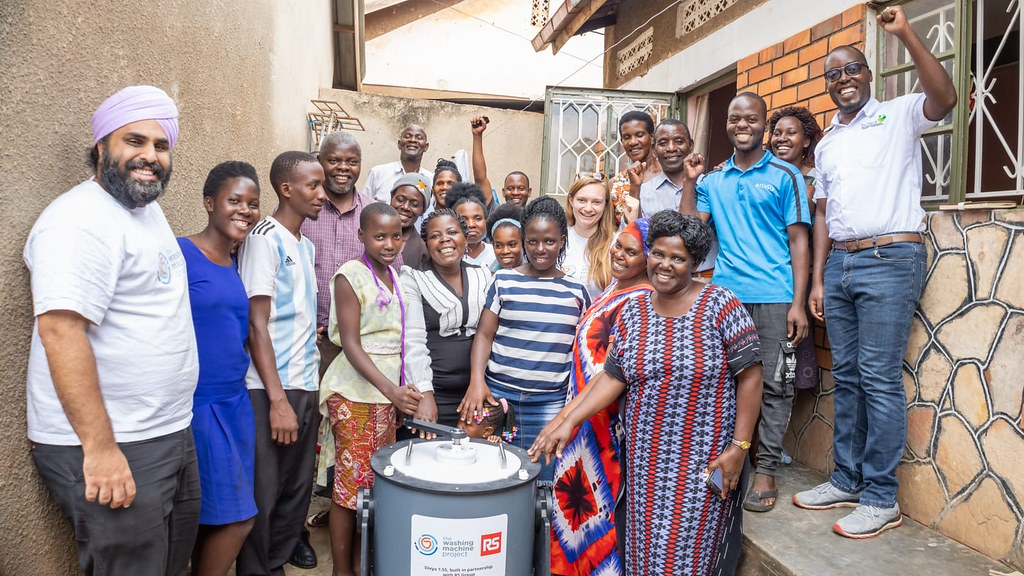Families living in Uganda will this week receive new hand-cranked washing machines, developed by a University of Bath graduate with his team at ‘The Washing Machine Project’ (TWMP).
The Washing Machine Project is in Uganda distributing manual, crank-handle washing machines to Sserinye Primary School and Orphanage on Lulamba Island, Uganda.
The school will receive 20 Divya washing machines that will positively impact up to 300 primary school children. The machines were funded through a three-way partnership between TWMP, RS Group PLC, and Help Core (a German NGO).
Founded in 2019 by engineer and humanitarian, Navjot ('Nav') Sawhney, for the past four years TWMP has been refining designs of its hand-cranked machine and scaling up production. So far, these simple-to-use, zero-energy, off-grid machines have been delivered to over 21,000 people in five countries, including in refugee camps in Iraq.
The project was inspired by Nav’s time in South India where he designed cookstoves with the charity Engineers without Borders. There he met his neighbour, Divya, who described her everyday struggles with clothes washing. Nav promised her a washing machine and when he returned from the UK, brought back a prototype.
Read more about the project in The Guardian.
Since then, TWMP has conducted research in 17 countries, interviewing over 3,000 families, including in Uganda, Jamaica, Nepal, India and the Philippines, to understand more about the everyday challenges associated with clothes washing. The charity has also partnered with some of the most prominent international NGOs.
The team have also successfully carried out pilots in Iraq and Lebanon and received orders from multiple countries for over 3,000 washing machines. This week’s trip to Uganda marks another milestone for the team which through its partnerships hopes to reach over 100,000 people around the world by 2024.
Speaking from Kampala, founder and University of Bath alumnus, Nav Sawhney said: “70% of the world’s population do not have access to an electric washing machine and for many, washing clothes in buckets or rivers is the only solution. This is back-breaking work and a major barrier to education for low-income and displaced people which disproportionately affects women.
“Our solution, the Divya machine, which is inspired by my neighbour in South India, has already benefited hundreds of families living in refugee camps in Iraq and Jordan. We are excited to be in Uganda this week, helping to deliver and instal more of these machines which we know can make a significant, positive impact on people’s lives.”
At the University, Nav studied the MSc in Humanitarianism, Conflict & Development. Director of Studies for that course, Professor Jason Hart added: “It is great to see how Nav and his team are taking forward The Washing Machine Project. We’re also delighted that this project has created volunteer opportunities for former and current students on our MSc programme to gain valuable experience.”
TWMP is also working in the UK. Currently, one in five of the phone calls it receives are from UK residents struggling to pay utility bills and are opting for manual washing solutions instead of electric ones. As a consequence, Nav and the team are also partnering with Innovate UK to trial manual washing solutions for homeless people in London with UK-based homeless charities.

